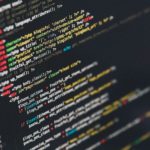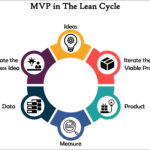How Artificial Intelligence is Revolutionizing EdTech
Introduction:
The field of education has witnessed a significant transformation with the advent of artificial intelligence (AI). This ground-breaking technology has revolutionized the way we teach and learn, empowering educators and students alike. AI's integration with educational technology (EdTech) has created a powerful constructive collaboration, enhancing personalized learning, optimizing administrative tasks, and improving educational outcomes. In this blog, we will explore the technologies driving the rise of EdTech and how they are shaping the future of education.
1. Adaptive Learning:
One of the key contributions of AI in EdTech is adaptive learning. AI algorithms analyse vast amounts of data, such as student performance, learning preferences, and individual strengths and weaknesses, to create personalized learning paths. With the help of AI-powered adaptive learning platforms, students can receive customized content and assessments, ensuring that they learn at their own pace and maximize their potential.
2. Natural Language Processing (NLP):
NLP, a subfield of AI, enables machines to understand and interpret human language. EdTech platforms leverage NLP to facilitate intelligent tutoring systems, chatbots, and virtual assistants. These tools can answer students' questions, provide explanations, offer guidance, and engage in interactive conversations, creating a personalized learning experience. NLP also supports automated essay grading, saving educators valuable time and providing prompt feedback to students.
3. Machine Learning:
Machine learning algorithms power numerous EdTech applications. By analysing vast datasets, machine learning models can identify patterns and make predictions. In EdTech, these models can be used to develop personalized recommendations for students, suggesting appropriate learning resources, courses, or study paths. Machine learning can also help detect learning gaps, identify struggling students, and propose interventions to improve their understanding and progress.
4. Data Analytics:
The integration of AI and data analytics in EdTech opens new possibilities for educators to gain valuable insights into student performance and learning patterns. By analysing data from various sources, such as student assessments, attendance records, and engagement metrics, AI-powered analytics tools can provide comprehensive reports and visualizations. This empowers educators to make data-driven decisions, identify areas for improvement, and design effective instructional strategies.
5. Virtual Reality (VR) and Augmented Reality (AR):
VR and AR technologies are transforming the way students experience learning. By immersing students in virtual environments, VR enables them to explore subjects that were once restricted to textbooks, enhancing engagement and understanding. AR overlays digital content onto the real world, allowing students to interact with educational materials in an interactive and immersive manner. AI algorithms can enhance VR and AR experiences by adapting the content to individual learning styles and preferences.
6. Intelligent Content Creation:
AI algorithms can generate educational content, such as quizzes, exercises, and interactive simulations. These algorithms can analyse existing educational materials, understand the underlying concepts, and create added content that is engaging and tailored to individual learners. Additionally, AI can assist in automating the content curation process, helping educators find relevant resources and saving time in lesson planning.
Conclusion:
Artificial intelligence has unleashed a new era of innovation in the field of education. EdTech platforms empowered by AI technologies are enabling personalized learning experiences, revolutionizing content creation, and providing educators with valuable insights to enhance teaching methodologies. As AI continues to advance, it promises to make education more accessible, engaging, and effective for learners worldwide. The integration of AI and EdTech is revolutionizing education, empowering both educators and students to thrive in the digital age.
Using AI-driven tools, teachers can analyse data on students' performance, including their strengths and weaknesses, and customize lesson plans accordingly.
At SouthIndus Labs, the team makes sure to bring the best technology solutions to the table. Reach out to our expert team transit to any digital solution.





